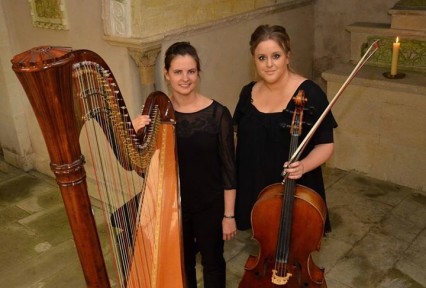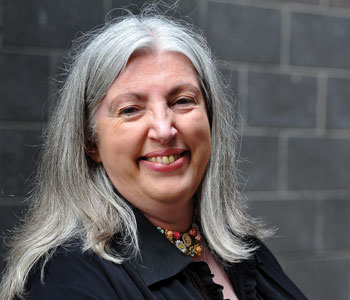On June 18, it will be 200 years to the day since the Battle of Waterloo in 1815, when the French army under Napoleon Bonaparte was defeated by the combined forces of Britain and Prussia, commanded by the Duke of Wellington. The end of Napoleon’s reign as the self-proclaimed Emperor of France marked one of the great turning points of history, and the culmination of a chapter riven by war in Europe. With its widespread, popular demand for ‘liberty, equality and fraternity’, the French Revolution of 1790 had sent egalitarian shockwaves across the continent, only for Napoleon to betray those ideals in his lust for supremacy and military conquest. Following his fall, a new era of peace would see ruling establishments everywhere tightening their grip on power.
The Napoleonic Wars touched Wales in a number of ways, and this year’s Gregynog festival will explore fascinating connections between North Powys in particular and events in France and elsewhere during that tumultuous time, under the theme of ‘Révolution’. The focus will be on French music and musicians, with a number of distinguished ensembles and soloists making their Welsh début during sixteen days of concerts, workshops, talks and events from June 13 – 28, taking place in venues across the county and beyond.*

By way of introduction, visitors to café venues in Newtown, Berriew and Brecon were treated to an informal, free lunchtime recital by cellist, Beatrice Newman and harpist, Bethan Semmens, who first came together as a duo under the Live Music Now scheme some two years ago. I caught them at the ever warmly hospitable Hours Café and Bookshop in Brecon on June 11, where they charmed the room with a lovely programme of music by a diverse range of composers from Fauré to Saint-Saëns, largely comprising transcriptions and arrangements. The duo were keen to stress their ambition to expand the repertoire for this undervalued combination of instruments, and they intend to commission composers to that purpose.
Of particular interest in this concert were two composers new to me: Jean-Michel Damase (1928-2013) was the son of the renowned harpist Micheline Kahn. He died only recently, leaving a legacy of attractive, idiomatic works including the Sicilienne Variée for solo harp performed here. More effective still was a lyrical Sicilienne (originally for violin and piano) by the Austrian composer Maria Theresia von Paradis (1759-1824); far from the only woman composer of this period – or any other, come to that – deserving of wider recognition. To date, she is mostly remembered as the blind pianist for whom Mozart wrote his Piano Concerto No. 18 in B-flat, K456.
The Gregynog Festival proper – the oldest extant music festival in Wales (founded in 1933), and which has been re-awarded Visit Wales Signature Status this year – will no doubt be full of such discoveries, musical and historic. Festival curator and artistic director Dr Rhian Davies is renowned for her vivid and illuminating programmes, based on meticulous research and a delight in unearthing the unknown or neglected gem. In that regard, she symbolises the continuing spirit of the Davies sisters, Gwendoline and Margaret (no relation to Rhian), famous pioneering patrons of the arts, who established an important cultural centre at Gregynog Hall, near Newtown in Powys, in the aftermath of World War I.

Indeed, recent research has revealed that Gwendoline Davies established a short-lived School of Instrumental Music at Aberystwyth in 1914, 35 years before the founding of the Cardiff College of Music – now the Royal Welsh College of Music and Drama – in 1949. As it happens, Davies’ School was staffed entirely by French musicians, and the intriguing discovery will be a focus of this opening Festival weekend, with a concert at the National Library of Wales by the Escher Quartet this evening, June 13, following afternoon events.
‘Waterloo 200’ commemorations will form the context for a cluster of early music concerts. An impressive array of ensembles, including The Society of Strange and Ancient Instruments, Fantasticus, Ensemble Amarillis, Les Folies Françoise and Les Talens Lyriques, will be joining harpist Masumi Nagasawa, fortepianist Kristian Bezuidenhout and others in bringing their particular take on historically-informed performance practice to Wales for the first time, alongside more familiar visitors such as the London Handel Players.
Coincidentally, it was around the early 1800s that musicians in France began to take an interest in reviving early repertoire; the exact period in which thousands of prisoners from the Napoleonic Wars were sent to Montgomeryshire and the Welsh Borders on parole. As Rhian Davies has discovered, many of these were officers who later fought and died at Waterloo, whilst some later returned to the area after being repatriated to France. Her intention is to highlight the colourful local stories concerning the French and their host communities in Wales, including, for example:
‘Lieutenant Pierre Augeraud’s romance with the Rector of Llanfyllin’s daughter; Napoleon’s brother Lucien Bonaparte who was held under house arrest at Ludlow; and Monsieur Duracq, the Welshpool dancing master who went home to Paris to learn new steps … and never returned!’
Further acclaimed performers enjoying their Welsh début during the Festival’s second week include: Ensemble Variance (with pianist Alexander Melnikov, and whose concert on June 26 at Gregynog Hall will actually be their UK début); mezzo-soprano Stéphanie d’Oustrac (who will be performing the lead role of Carmen at Glyndebourne this summer); pianist Anne Queffélec, and the celebrated vocal ensemble Vox Luminis from Belgium.
The final weekend will focus on musical revolutionaries of the late 19th and early 20th centuries, including Scriabin, Satie and Debussy, and a programme of Charpentier and DuMont from Vox Luminis will close the Festival with a return to early repertoire. All this, plus a recital by Welsh pianist Iwan Llewelyn-Jones, dance workshops, a period menu tasting, a screening of Sergei Bondarchuk’s film, Waterloo, and the rare opportunity to view artworks by Lieutenant Augeraud in Llanfyllin – as well as to visit Plas Dinam, the childhood home of the Davies sisters, and site of the Davies family museum, in Llandinum.
It’s going to be a fortnight and more of discovery to savour in mid Wales.
* Yesterday’s projected opening concert by harpist Xavier de Maistre at the Gregynog Gallery in Cardiff’s National Museum has been postponed until December 9 owing to illness.
Further details of performers, programmes and venues, plus booking information, can be found on the Gregynog Festival website at http://gregynogfestival.org/
Header painting: ‘Napoleon Crossing the Alps’ by Jacques-Louis David, 1801, oil on canvas. To be found printed on the cover of the Festival programme – and hanging in the Château de Malmaison near the western bank of the Seine.












